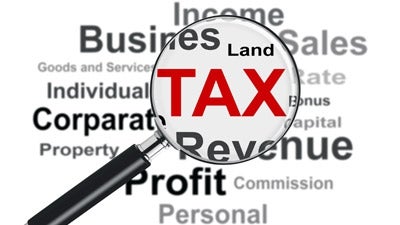
1. Business Structure. Prior to start up, you’ll need to choose the structure of your business. Some common types include sole proprietorship (Form 1040), partnership (Form 1065) and corporation (Form 1120). You may also choose to be an S corporation (Form 1120-S) or Limited Liability Company. You’ll report your business activity using the IRS forms which are right for your business type. A Limited Liability Company (created by state statute) may be taxed as a sole proprietorship (single member), a partnership (multiple members), or other taxable entity.
2. Business Taxes. There are four general types of business taxes. They are income tax, self-employment tax, employment tax and excise tax. The type of taxes your business pays usually depends on which type of business you choose to set up. You may need to pay your taxes by making estimated tax payments.
3. Employer Identification Number. You may need to get an EIN for federal tax purposes. Search “do you need an EIN” on IRS.gov to find out if you need this number. If you do need one, you can apply for it online.
4. Accounting Method. An accounting method is a set of rules that determine when to report income and expenses. Your business must use a consistent method. The two that are most common are the cash method and the accrual method. Under the cash method, you normally report income in the year that you receive it and deduct expenses in the year that you pay them. Under the accrual method, you generally report income in the year that you earn it and deduct expenses in the year that you incur them. This is true even if you receive the income or pay the expenses in a future year.
5. Employee Health Care. The Small Business Health Care Tax Credit helps small businesses and tax-exempt organizations pay for health care coverage they offer their employees. A small employer is eligible for the credit if it has fewer than 25 employees who work full-time, or a combination of full-time and part-time. Beginning in 2014, the maximum credit is 50 percent of premiums paid for small business employers and 35 percent of premiums paid for small tax-exempt employers, such as charities.
For 2015 and after, employers employing at least a certain number of employees (generally 50 full-time employees or a combination of full-time and part-time employees that is equivalent to 50 full-time employees) will be subject to the Employer Shared Responsibility provision.
For assistance with starting a business, feel free to connect with me on TaxConnections.
Original Post By: Darren Sanford, Republished from TaxConnections
Author: Darren Sanford is a CPA, entrepreneur and network marketing professional. He is a 22+ year veteran in the small business tax and accounting industry, with an emphasis in home based business. He is active in accounting and tax education groups both as a trainer and a student and is a beta tester for continuing education programs for the AICPA.
2537 Views












